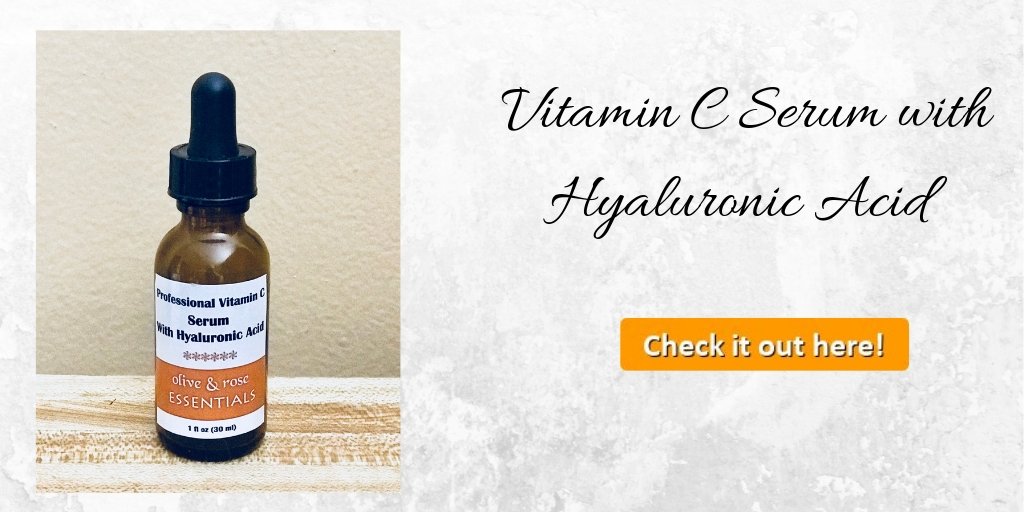If you’ve struggled with acne, you know the toll it can take on your self-esteem. . It’s so visible – right there on your face for the whole world to see. It’s heartbreaking. Acne is often caused by hormonal imbalances, but did you know that vitamin D, a hormone itself, plays a role as well? Can a vitamin D deficiency cause acne? It can and the remedy is as close as your own backyard!

Although vitamin D is thought of as a vitamin, in reality it’s a steroid hormone that has multiple functions in the body. In fact, it’s one of the most important hormones due to its effect on genetic expression.
Table of Contents
Why Vitamin D Is So Important
Vitamin D is necessary for the prevention of chronic disease. Thousands of lives are lost each year, worldwide, due to conditions that are chronic in nature. This issue is of no small importance. Vitamin D reduces cancer risk, as it not only regulates the growth of cells, but fights the disease as it’s developing.
Immune function is greatly influenced by vitamin D due to the role it plays in gene expression. Immune function can’t be underestimated, as poor immunity leads to a slew of health conditions that could be prevented, or at least reduced, with healthy levels of this vital hormone. Cardiovascular disease is the number one killer in the United States. Think of the cost in terms of human suffering and health-care dollars that could be saved if we aimed for healthy levels of vitamin D.
Vitamin D, an immune modulator, is important for the prevention and treatment of autoimmune diseases. Diseases like multiple sclerosis, inflammatory bowel disease, type I diabetes, and rheumatoid arthritis are on the rise, and there is considerable research implicating low vitamin D levels with these conditions.
#affiliate links
Vitamin D And Disease
The big killers, such as, heart disease, stroke, autoimmunity, and cancer can all be reduced by smart sun exposure, and vitamin D supplementation. Sun exposure is important for the production of nitric oxide as well. When nitric oxide is released into the bloodstream, it lowers high blood pressure, decreasing the risk of heart disease and stroke.
It’s controversial whether Alzheimer’s disease is an autoimmune condition, but one thing is sure, this devastating disease is inflammatory in nature, and vitamin D controls inflammation. At a bare minimum you want your 1,25-hydroxyvitamin D levels to be at least 30 ng/ml, and preferably, around 50 or above. There is a fair bit of controversy concerning what the ideal levels should be. Read more about the debate online if this sparks your interest.
You can get your levels tested here.

 Vitamin D Deficiency Signs And Symptoms
Vitamin D Deficiency Signs And Symptoms
If you are indoors the majority of the time without seeing the sun much, you could easily have a vitamin D deficiency. If you are in the sun, but always wear sunscreen, you’re also at risk.
Sun protection blocks the health-giving UVB rays that produce vitamin D on your skin. Vitamin D deficiency is epidemic, with up to 50 percent of the population being deficient. Please take care to make sure you’re not in this camp.
Those at risk of having low vitamin D are those with dark skin, people over 50 years of age, those residing in northern climates, people who always wear sunblock when sunbathing, and those who never even see the sun.
And don’t be fooled into thinking because you consume fortified foods you’re protected. The amount of D3 in fortified foods is not sufficient to obtain therapeutic levels. Here are some signs and symptoms you may have a vitamin D deficiency:
- GI problems
- Depression
- Achy joints
- Obesity
- General malaise
- Muscle and joint pain
- Headaches
- insomnia
- Dental problems
- Bladder problems
Vitamin D is essential for the absorption of calcium so just taking calcium, alone, for bone health is not going to cut it. Magnesium supplementation is crucial as it assures that calcium is directed to the bones and teeth where it belongs, and not in the soft tissue where it causes a lot of problems.
It’s easy to get enough calcium from foods, but obtaining magnesium from food is another story because our soils are not rich in this vital mineral. Think of vitamin D, calcium, and magnesium as a winning trifecta! Now back to vitamin D and acne.
Ultraviolet Light Therapy And Acne
As far back as the 1930s, UV light therapy has been shown to mitigate or eliminate acne. Well, guess what you get from UV light? That’s right – glorious vitamin D. UV light is also effective at fighting acne because it’s a potent antimicrobial. Here’s how it goes:
1. You have fun in the sun for a couple of hours
2. Vitamin D is synthesized on your skin
3. Antimicrobial peptides, that occur naturally in the body, are produced
4. These peptides, then, go to work eliminating the cell walls of infectious viruses and bacteria
And that’s not all – white blood cells also increase with sun exposure, further fighting infections. I hope I’ve sold you on the importance of vitamin D, not only for disease prevention, but for the treatment of acne. Because acne strikes at the heart of its victims, damaging their self-esteem while it disfigures, learning strategies to prevent and treat it is essential.
Vitamin D Supplementation
Ideally, it’s best to build your vitamin D stores from sun exposure, however, that isn’t feasible for many people, especially those living in northern latitudes. It’s also not possible to obtain vitamin D from the sun in the winter months. Supplementation is the next best option. Food-based sources of vitamin D3 are the best, in my opinion.
I like fermented cod liver oil – it contains the omega-3 fatty acids EPA and DHA, and also contains vitamin A. Don’t buy supplements with D2, you want D3 (cholecalciferol) as this is the natural form your body makes from the sun.
Get fermented cod liver oil here
Other forms of supplemental vitamin D are made from sheep lanolin. If you do buy this form, realize that it’s best to choose a brand that contains K2, which is important to direct calcium to the bones where it is needed. The reason K2 is found in D3 supplementation is that vitamin D helps take calcium from the GI tract to the bloodstream, and K2 then directs that calcium away from the soft tissues, where it can do damage, into the bones.
Buy D3 with K2 here
Key Points
If you’re suffering from acne or any other skin-related condition, take up to 2,000 IUs of vitamin D daily, and see if you don’t notice a marked improvement in your skin.
Vitamin D is essential for many processes in the body so we should all be taking it as a matter of practice for general well being, cancer prevention, autoimmunity, infections, and mental health.
Do you have acne? What strategies have worked to for you? Let me know in the comments:)
References:
(1) National Library of Medicine National Center for Biotechnology Information: The impact of active vitamin D administration on the clinical outcomes of acne vulgaris
(2) National Library of Medicine National Center for Biotechnology Information: Comparison of Vitamin D Levels in Patients with and without Acne: A Case-Control Study Combined with a Randomized Controlled Trial
(3) Plos One: Comparison of Vitamin D Levels in Patients with and without Acne: A Case-Control Study Combined with a Randomized Controlled Trial
(4) ResearchGate: Comparison of Vitamin D Levels in Patients with and without Acne: A Case-Control Study Combined with a Randomized Controlled Trial

